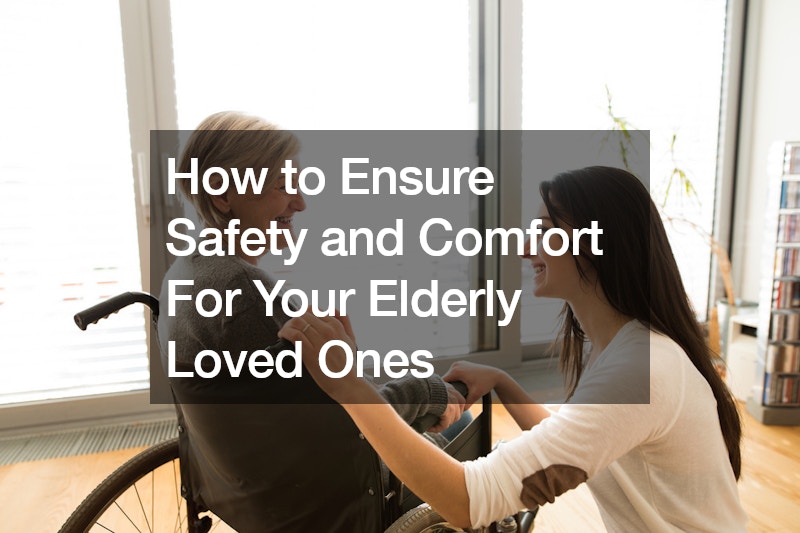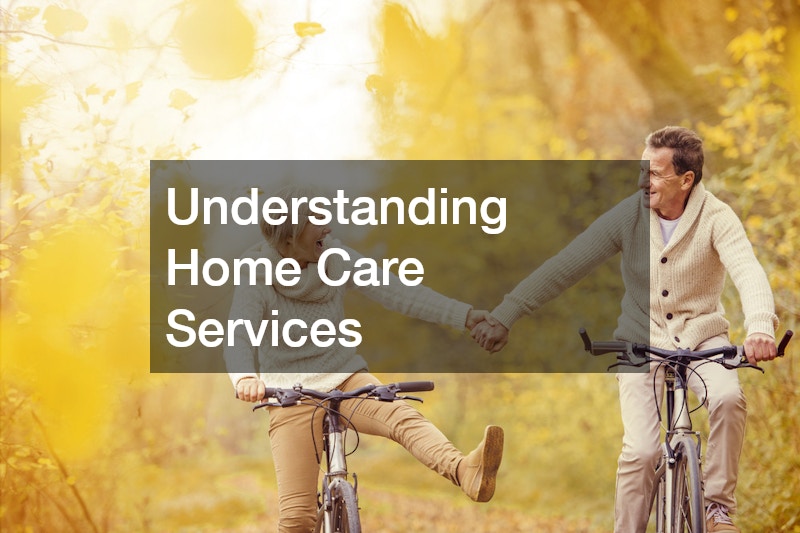As our loved ones age, their needs may change, and providing them with a safe and comfortable environment becomes paramount. Whether they’re living with you or independently, there are essential steps you can take to ensure their well-being. From assessing their needs to organizing their care, here’s how you can create a supportive space for your elderly family members.
Assessing Their Needs: The first step in caring for elderly loved ones is understanding their level of independence and any specific requirements they may have. Accompanying them to doctor’s appointments can provide valuable insights into their health and mobility.
Take notes during these appointments to remember important information and discuss it later. Additionally, consider consulting a home care service for professional assessment and guidance tailored to your loved one’s needs.
Promoting Independence: Encouraging independence is essential for maintaining your loved one’s dignity and autonomy. Simple adjustments, such as installing grab bars in the bathroom or using shower chairs, can enhance their ability to perform daily tasks safely. Allow them to participate in decision-making regarding their care whenever possible, empowering them to maintain control over their lives.
Ensuring Home Safety: Making modifications to your home can significantly reduce the risk of accidents and falls for elderly family members. Remove tripping hazards such as throw rugs and ensure adequate lighting in hallways and staircases. Installing handrails and grab bars in strategic locations, particularly near the toilet and shower, enhances stability and prevents slips. Consider using monitoring devices or baby monitors to quickly respond to their needs, especially if they have mobility issues.
Organizing Care: Keeping track of appointments, medications, and daily routines can be overwhelming without proper organization. Utilize wall calendars and notebooks to record important information, including doctor’s appointments, medication schedules, and contact details for healthcare providers. Consider using medication cassettes or pill organizers to simplify medication management. If needed, enlist the support of a home care service to assist with caregiving tasks and provide respite for family caregivers.
Creating Comfort: Prioritize your loved one’s comfort by providing them with supportive furniture and assistive devices. Invest in a comfortable mattress and adjustable bed to promote better sleep quality and alleviate any discomfort. Consider using cushions and pillows to provide additional support for sitting or lying down. Personalize their living space with familiar belongings and décor to create a sense of familiarity and security.
Incorporating Fall Prevention Measures: Falls are a significant concern for elderly individuals, but many accidents can be prevented with proactive measures. Remove clutter from walkways and secure loose rugs to prevent tripping hazards. Ensure that handrails are securely installed on staircases and in the bathroom. Improve lighting throughout the house to enhance visibility and reduce the risk of missteps.
Seeking Professional Assistance: Providing care for elderly loved ones can be challenging, especially for those with complex medical needs or cognitive impairments. Consider engaging the services of a home care service to provide professional support and assistance. Home caregivers can offer companionship, help with daily activities, and ensure medication adherence, allowing your loved ones to age in place safely and comfortably.
Medication Management: Elderly individuals often have multiple medications to manage, which can be overwhelming and challenging to keep track of. Establishing a system for organizing and administering medications is essential for ensuring they receive the right doses at the right times. This may involve using pill organizers, medication reminder apps, or enlisting the help of a caregiver to assist with medication management. It’s important to keep an updated list of medications, including dosage instructions and any potential side effects. Regularly reviewing medications with a healthcare provider can help optimize treatment and prevent adverse reactions. Effective medication management is crucial for promoting health and preventing complications in elderly individuals.
Emotional Support: Elderly individuals often benefit greatly from emotional companionship and social interaction. Spending quality time with them, engaging in meaningful conversations, and participating in activities they enjoy can help combat feelings of loneliness and isolation. Additionally, encouraging involvement in community groups or social clubs can foster a sense of belonging and connection. Recognizing and addressing their emotional needs is essential for promoting overall well-being and mental health.
In conclusion, ensuring the safety and comfort of your elderly loved ones requires careful planning and attention to detail. By assessing their needs, promoting independence, and creating a supportive environment, you can enhance their quality of life and well-being. Don’t hesitate to seek assistance from home care services or healthcare professionals to provide comprehensive care and support for your aging family members. With the right approach, you can create a nurturing and secure environment where your loved ones can thrive in their later years.
.



